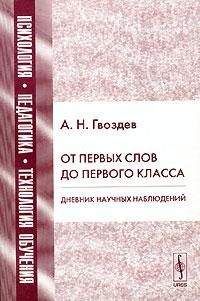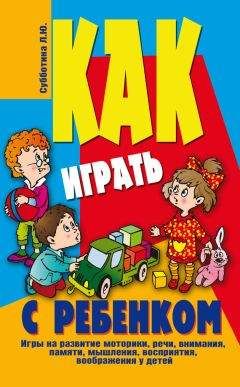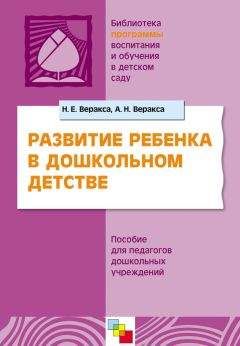Роберт Говард - Английский язык с Р. Э. Говардом
ceiling [ˈsi:lɪŋ], dais [ˈdeɪɪs], fortune [ˈfɔ:ʧən]
It was octagonal in shape, and the great dome up in which the lofty ceiling curved obviously was cunningly pierced, for the chamber was much better lighted than the hall which led to it. At the farther side of the great room there rose a dais with broad lapis-lazuli steps leading up to it, and on that dais there stood a massive chair with ornate arms and a high back which once doubtless supported a cloth-of-gold canopy. Conan grunted explosively and his eyes lit. The golden throne of Alkmeenon, named in immemorial legendry! He weighed it with a practised eye. It represented a fortune in itself, if he were but able to bear it away. Its richness fired his imagination concerning the treasure itself, and made him burn with eagerness.
His fingers itched to plunge among the gems he had heard described by story-tellers in the market squares of Keshia (у него пальцы = руки чесались от желания погрузить /их/ в драгоценные камни, описание которых он слышал от сказителей = он слышал описываемыми сказителями на рыночных площадях Кеши; to itch — зудеть, чесаться; испытывать непреодолимое желание), who repeated tales handed down from mouth to mouth through the centuries (которые повторяли байки, передаваемые из уст в уста на протяжении веков; to hand down — передавать по наследству, оставлять, передавать младшим поколениям) — jewels not to be duplicated in the world (самоцветы, которым нет ровни в мире; to duplicate — снимать копию; делать дубликат; копировать; duplicate — аналогичный; идентичный; скопированный), rubies, emeralds, diamonds, bloodstones, opals, sapphires, the loot of the ancient world (рубины, изумруды, алмазы, кровавики, опалы, сапфиры, богатство древнего мира; loot — добыча, трофеи; деньги, богатство).
He had expected to find the oracle-effigy seated on the throne (он надеялся найти изображение оракула расположенным на троне; to seat — усаживать; располагаться, находиться, быть расположенным), but since it was not (но поскольку его там не было), it was probably placed in some other part of the palace (оно, вероятно, было размещено в какой-то другой части дворца), if, indeed, such a thing really existed (если, конечно, такая вещь существовала на самом деле). But since he had turned his face toward Keshan (но с тех пор, как он направился в Кешан; to turn one’s face to/towards smth. — отправиться, направиться куда-л.), so many myths had proved to be realities (так много = столько мифов оказалось реальностью; to prove to be — оказаться) that he did not doubt that he would find some kind of image or god (что он не сомневался, что найдет какой-то вид = какое-нибудь изваяние или идола; kind — сорт, разряд; вид, класс; god — бог, божество; идол).
ruby [ˈru:bɪ], diamond [ˈdaɪəmənd], sapphire [ˈsæfaɪə]
His fingers itched to plunge among the gems he had heard described by story-tellers in the market squares of Keshia, who repeated tales handed down from mouth to mouth through the centuries — jewels not to be duplicated in the world, rubies, emeralds, diamonds, bloodstones, opals, sapphires, the loot of the ancient world.
He had expected to find the oracle-effigy seated on the throne, but since it was not, it was probably placed in some other part of the palace, if, indeed, such a thing really existed. But since he had turned his face toward Keshan, so many myths had proved to be realities that he did not doubt that the would find some kind of image or god.
Behind the throne there was a narrow arched doorway (за троном был узкий арочный дверной проем) which doubtless had been masked by hangings in the days of Alkmeenon's life (который, бесспорно, был замаскирован драпировкой в дни жизни Алкминона). He glanced through it and saw that it let into an alcove, empty (он заглянул в него и увидел, что он пропускал в альков, пустой; to let in — впускать, пропускать), and with a narrow corridor leading off from it at right angles (и с узким коридором, начинающимся от него под прямым углом; to lead off — начинать; right — правый, правильный; прямой /об угле, градусная мера которого 90 градусов/). Turning away from it (отвернувшись от него; to turn away — отворачиваться), he spied another arch to the left of the dais (он заметил еще одну арку слева от помоста; to spy — шпионить; заметить, разглядеть, увидеть), and it, unlike the others, was furnished with a door (а она, в отличие от остальных, была снабжена дверью; unlike — в отличие от). Nor was it any common door (и это была не обычная дверь). The portal was of the same rich metal as the throne (дверь была из того же ценного металла, что и трон; rich — богатый; ценный), and carved with many curious arabesques (и /на ней были/ выгравированы многие чудные арабески; curious — любопытный; чудной, необычный).
doubtless [ˈdautlɪs], right [raɪt], arabesque [ˌærəˈbesk]
Behind the throne there was a narrow arched doorway which doubtless had been masked by hangings in the days of Alkmeenon's life. He glanced through it and saw that it let into an alcove, empty, and with a narrow corridor leading off from it at right angles. Turning away from it, he spied another arch to the left of the dais, and it, unlike the others, was furnished with a door. Nor was it any common door. The portal was of the same rich metal as the throne, and carved with many curious arabesques.
At his touch it swung open so readily that its hinges might recently have been oiled (при его прикосновении она открылась так легко, что = словно ее петли были недавно смазаны маслом; to swing open — распахнуться, открыться; readily — охотно, с готовностью; легко, без труда; oil — масло; to oil — смазывать; втирать). Inside he halted, staring (внутри он остановился, широко раскрыв глаза; staring — широко раскрытый /о глазах/; to stare — пристально смотреть, уставиться).
He was in a square chamber of no great dimensions (он оказался в квадратной комнате небольших размеров), whose marble walls rose to an ornate ceiling, inlaid with gold (мраморные стены которой поднимались к богато украшенному потолку, инкрустированному золотом; inlaid — инкрустированный). Gold friezes ran about the base and the top of the walls (золотистые фризы тянулись по основанию и верхней части стен; to run — бегать; тянуться; top — верх, верхушка; верхняя часть), and there was no door other than the one through which he had entered (и не было другой двери, кроме той, через которую вошел он; other than — иной кроме; one — слово-заместитель во избежание повторения ранее упомянутого существительного). But he noted these details mechanically (но он заметил эти детали механически = машинально; to note — замечать, обращать внимание). His whole attention was centered on the shape which lay on an ivory dais before him (все его внимание было сосредоточено на фигуре, которая лежала на возвышении из слоновой кости перед ним; to center on — сосредоточиваться на чем-л.; dais — помост, возвышение).
He had expected an image (он ожидал изваяния), probably carved with the skill of a forgotten art (возможно, высеченного с мастерством позабытого искусства; skill — искусство, мастерство). But no art could mimic the perfection of the figure that lay before him (но никакое искусство не могло скопировать совершенство фигуры, которая покоилась перед ним; to mimic — пародировать; копировать;to lie — лежать; покоиться).
touch [tʌʧ], frieze [fri:z], detail [ˈdi:teɪl]
At his touch it swung open so readily that its hinges might recently have been oiled. Inside he halted, staring.
He was in a square chamber of no great dimensions, whose marble walls rose to an ornate ceiling, inlaid with gold. Gold friezes ran about the base and the top of the walls, and there was no door other than the one through which he had entered. But he noted these details mechanically. His whole attention was centered on the shape which lay on an ivory dais before him.
He had expected an image, probably carved with the skill of a forgotten art. But no art could mimic the perfection of the figure that lay before him.
It was no effigy of stone or metal or ivory (это было не изображение из камня, металла или слоновой кости). It was the actual body of a woman (это было настоящее тело женщины), and by what dark art the ancients had preserved that form unblemished for so many ages Conan could not even guess (и каким темным искусством = и какой черной магией древние сохранили эту фигуру безукоризненной на протяжении стольких веков, Конан не мог даже предположить; black art — черная магия;form — форма, вид; фигура /человека/; age — возраст; век; to guess — гадать, догадываться; полагать, считать). The very garments she wore were intact (сами одежды, которые она носила = которые были на ней, были не повреждены; very — тот самый, именно тот; сам;to wear — носить) — and Conan scowled at that (и Конан хмуро посмотрел на это; to scowl at — смотреть сердито, бросать сердитый взгляд; хмуриться, хмурить брови), a vague uneasiness stirring at the back of his mind (/при этом/ у него в подсознании зашевелилась какая-то смутная тревога; at the back of one's mind — подсознательно). The arts that preserved the body should not have affected the garments (магия, которая сохранила тело, не должна была повлиять на одежду). Yet there they were (тем не менее они были тут = вот они) — gold breast-plates set with concentric circles of small gems (золотые нагрудные пластины = золотой нагрудник, украшенный концентрическими кругами из мелких драгоценных камней; to set with — усыпать, украшать), gilded sandals, and a short silken skirt upheld by a jeweled girdle (позолоченные сандалии и короткая шелковая юбка, поддерживаемая поясом, отделанным драгоценностями; to uphold — поддерживать; to jewel — украшать, отделывать драгоценными камнями). Neither cloth nor metal showed any signs of decay (ни ткань, ни металл не обнаруживали никаких признаков обветшания; to show — показывать; обнаруживать, проявлять;decay — гниение; обветшание, разрушение /физических предметов/).
Yelaya was coldly beautiful, even in death (Елая была холодно красива, даже в смерти). Her body was like alabaster, slender yet voluptuous (ее тело было подобно алебастру, стройное, но тем не менее роскошное; voluptuous — чувственный, сладострастный; пышный, роскошный; возбуждающий чувственное желание /о фигуре, формах тела/); a great crimson jewel gleamed against the darkly piled foam of her hair (огромный малиновый /драгоценный/ камень мерцал на фоне пушистой, с темным оттенком, пены ее волос; pile — куча; пух, шерсть;darkly — с темным оттенком).
neither [ˈnaɪðə], decay [dɪˈkeɪ], voluptuous [vəˈlʌpʧuəs]
It was no effigy of stone or metal or ivory. It was the actual body of a woman, and by what dark art the ancients had preserved that form unblemished for so many ages Conan could not even guess. The very garments she wore were intact — and Conan scowled at that, a vague uneasiness stirring at the back of his mind. The arts that preserved the body should not have affected the garments. Yet there they were — gold breast-plates set with concentric circles of small gems, gilded sandals, and a short silken skirt upheld by a jeweled girdle. Neither cloth nor metal showed any signs of decay.




